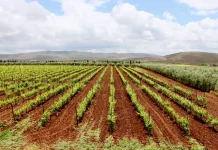Responsible tourism is a recent concept within the tourism industry. This concept was developed by Jost Krippendorf within the 1980’s. His aim was to “to develop and promote recent types of tourism, which can bring the best possible profit to all of the participants – travelers, the host population and the tourist business, without causing intolerable ecological and social damage.”
Responsible tourism could be defined as ” tourism which creates higher places for people to live in, and higher places to go to”. Some of the major objectives of Responsible tourism are as follows:
1.To respect local cultures – traditions, religions and built heritage.
2. To protect the environment – its flora, fauna and landscapes.
3. To conserve natural resources – from source to destination.
4. To profit local communities – each economically and socially.
5. To minimize pollution – through noise, waste disposal and congestion.
In a nut shell, Responsible tourism is that type of tourism during which initiatives and responsibilities are taken by each the tourists and the travel agencies to maximise the positive impacts and minimize the negative impacts on environment, traditions and cultural heritage of the region.
Responsible Tourism is rapidly growing global trend. Some of the nations like South Africa, the United Kingdom, United States, the Gambia, Sri Lanka and India are already practicing Responsible Tourism and progressively other nations are also following the ideologies of those countries.
India has an abundant scope to emerge as a Responsible tourism destination. Indian tourism industry has grown immensely within the last five years and it’s needless to say that within the upcoming years India will develop into a hot tourist destination of South East Asia. To sustain this growth process it’s vital that each one the stakeholders of the Indian tourism industry ie tour operators, government agencies and NGO’s must work in cohesion. They must protect the heritage of our country which in turn will profit each the local communities and the tourists.
To develop India as a Responsible tourism destination, ICRT India which stands for International Centre For Resposible Tourism works in collaboration with private sector, government and native communities. It is a Bangolore based non-profit organization, establishes in 2006, whose major objective is to “take responsibility for achieving sustainable tourism, and to create higher places for people to live in and for people to go to.” It provides policy advice, research and consultation on developing Responsible Tourism in India.
Among all Indian states, Kerala has pioneered in practicing modern tourism ideas. It is a state which is wealthy in traditions and culture. It has began Responsible tourism within the state to create awareness amongst all stakeholders for a greater environment to live and visit. Kerala has organized the second International Responsible tourism conference from twenty first March to twenty fourth March, 2008.
Some of the successful Responsible tourism projects of India are –
“Sunderban Jungle Camp” initiated by Help Tourism group to attach the heritage sites and guarded areas of Sunderban with the livelihood of the local communities through community-based, environmentally and socially responsible tourism.
“Awake and shine” is one other successful Responsible Tourism project. This project was began by Retired Indian Army General “Jimmy” Singh in May 2006 to develop the Samthar Plateau near Kalimpong(40km) as a tourist destination depending on the homestay holidays, local handicrafts and other products. This project has helped the local people to enhance their life style and the region to make its mark on the Indian tourist map.
Another the Responsible Tourism project of India is within the Anakkara Spice Tourism village in Idukki district of Kerala. This project was began in October 2004 by Women in Agriculture (WIA), a bunch of girls who has joined hands to preserve nature, share advantages of tourism among the many local populace and boost the local economy. This project has enable these ladies to enhance their lifestyle by providing their share of income within the well being of their family.
Escape the ordinary and discover the extraordinary! From bustling cities to serene landscapes, every journey begins with a single step—let us guide yours. Enjoy curated itineraries, hidden gems, and hassle-free bookings designed for explorers at heart. Whether it's a weekend getaway or a globe-trotting adventure, your Next unforgettable experience is just a click away.










